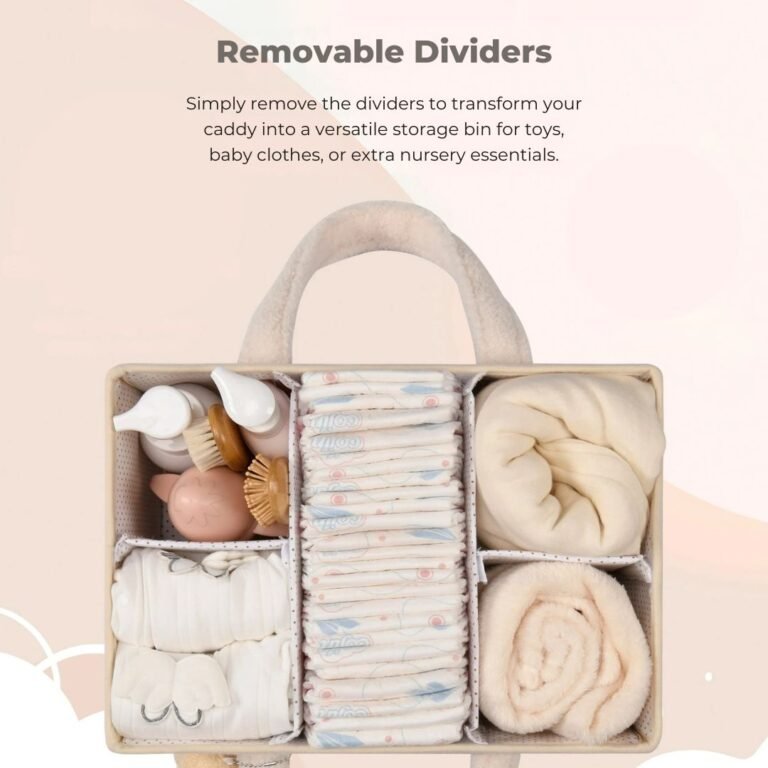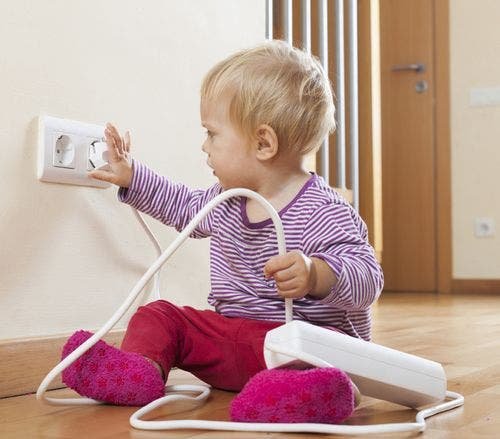Breastfeeding Vs Bottle Feeding: Tips, Pros & Cons Unveiled
Choosing how to feed your baby is one of the most important decisions you will make as a parent. You may find yourself torn between breastfeeding and bottle feeding, each with its own set of advantages and challenges.
Are you curious about which option aligns best with your lifestyle and values? Do you want to ensure your baby gets the best nutrition possible while maintaining your own health and well-being? You will discover the pros and cons of both breastfeeding and bottle feeding, along with practical tips to make feeding your baby a joyful experience.
Whether you’re leaning towards nursing or bottle feeding, or even considering a combination of both, you’ll find valuable insights that can ease your decision-making process. Dive into the details to learn how to nurture your little one in a way that feels right for you and your family.
Breastfeeding Benefits
Breastfeeding offers natural antibodies, promoting a baby’s immune system and reducing infection risks. It also strengthens mother-child bonding. Bottle feeding provides flexibility and convenience, allowing others to help feed the baby. Each method has its own advantages, making it important to consider personal circumstances and preferences.
When considering how to feed your baby, breastfeeding offers numerous benefits that can significantly impact both mother and child. It’s a deeply personal choice with many factors to weigh. Let’s take a closer look at the nutritional advantages, the bonding experience, and the health benefits for mothers.Nutritional Advantages
Breast milk is often referred to as nature’s perfect food for infants. It contains the ideal balance of nutrients your baby needs for healthy growth and development. Unlike formula, breast milk adapts to your baby’s changing nutritional needs over time. For example, the antibodies in breast milk help protect newborns from infections and illnesses. This natural immunity boost is something formula can’t replicate. Have you ever wondered why breastfed babies often recover from colds faster? It’s because of the powerful nutrients in breast milk.Bonding With Baby
Breastfeeding offers a unique opportunity to strengthen the emotional connection with your baby. Holding your little one close during feeding sessions can enhance feelings of security and comfort. This skin-to-skin contact is invaluable in building a strong, lasting bond. Many mothers share that breastfeeding has deepened their relationship with their child. Do you remember the warmth and closeness you felt when holding your baby for the first time? Breastfeeding can create that feeling over and over again.Health Benefits For Mother
Breastfeeding isn’t just beneficial for babies; it has significant health advantages for mothers too. It can help you recover from childbirth more quickly. Nursing burns extra calories, which can aid in losing pregnancy weight. Breastfeeding also lowers the risk of certain cancers, such as breast and ovarian cancer. Have you considered the long-term health benefits that breastfeeding offers? Beyond physical health, it can provide emotional satisfaction and confidence in nurturing your child. As you weigh your options, think about the unique benefits breastfeeding can bring to you and your baby. What matters most is making the choice that feels right for your family.Challenges Of Breastfeeding
Breastfeeding offers numerous benefits, but it comes with challenges. Many mothers experience difficulties that can be stressful. Understanding these challenges helps in managing them better. Let’s explore some common challenges of breastfeeding.
Physical Discomfort
Breastfeeding can cause physical discomfort. Sore nipples are a frequent issue. Incorrect latching can lead to pain and even cracks. Engorgement can occur when breasts are too full. This condition can cause swelling and tenderness. Some mothers may also experience mastitis, an infection causing flu-like symptoms. Seeking advice from a lactation consultant can help ease these discomforts.
Dietary Restrictions
Mothers need to watch their diets while breastfeeding. Certain foods may affect the baby’s digestion. Spicy foods might upset a baby’s stomach. Caffeine intake should be limited. Alcohol should be consumed with caution, considering its impact on breast milk. A balanced diet ensures the baby receives essential nutrients. Consulting a healthcare provider for dietary advice can be beneficial.
Social And Lifestyle Considerations
Breastfeeding requires adapting social activities. Mothers need to find suitable places for feeding. Public breastfeeding can make some feel uncomfortable. Planning outings around feeding times becomes necessary. Night-time feedings can disrupt sleep patterns. Support from family and friends is crucial. Joining breastfeeding support groups can offer guidance and encouragement.
Bottle Feeding Benefits
Bottle feeding offers flexibility and convenience for parents. It allows others to help with feeding and ensures a measured milk intake. This method can be beneficial in balancing parental responsibilities and work schedules.
Choosing how to feed your baby is a big decision. Many parents find bottle feeding to be a practical and flexible option. It offers unique benefits that cater to diverse lifestyles and needs. Let’s explore these advantages and see how they might fit into your parenting journey.Convenience And Flexibility
Bottle feeding allows you to feed your baby anytime and anywhere. Whether you’re at home or on the go, you don’t have to worry about finding a private spot for nursing. Imagine enjoying a family picnic in the park without the stress of finding a quiet corner. Plus, with bottle feeding, you can schedule feedings around your activities, making life a little smoother.Shared Feeding Responsibilities
Bottle feeding means both parents can share the feeding duties. This creates a wonderful opportunity for bonding. Picture your partner waking up for the night feed, giving you a well-deserved break. It’s not just about dividing tasks; it’s about sharing precious moments with your baby. Have you ever felt overwhelmed managing everything on your own? With bottle feeding, sharing responsibilities can ease that burden.Diet Control For Baby
With bottle feeding, you have control over your baby’s diet. You can measure exactly how much your baby is consuming, ensuring they get the right nutrition. If your baby has allergies or specific dietary needs, bottle feeding allows you to customize their formula. This control can offer peace of mind, knowing your baby is getting what they need to grow and thrive. In what ways do you think bottle feeding could make your life easier? Would the ability to adjust your baby’s diet to their needs be beneficial? These are questions worth considering when making your feeding choice.Challenges Of Bottle Feeding
Parents face challenges with bottle feeding, including the risk of nipple confusion for infants. It may also lead to digestive issues, such as gas or colic, making feeding times stressful. Understanding these potential difficulties is important in deciding between breastfeeding and bottle feeding.
Choosing between breastfeeding and bottle feeding is a significant decision for new parents. While bottle feeding offers convenience, it also presents its own set of challenges. Understanding these hurdles can help you make informed choices and prepare for what lies ahead. ###Cost Considerations
Bottle feeding can be expensive. The cost of formula, bottles, and sterilizing equipment adds up quickly. Have you thought about the long-term financial impact? Many parents are surprised by how much they spend on formula alone in the first year. Consider creating a budget to manage these expenses effectively. ###Nutritional Concerns
Formula doesn’t offer the same antibodies found in breast milk. This could mean your baby might miss out on some immune-boosting benefits. Reading labels carefully is crucial. Some formulas are fortified with additional nutrients, while others might not meet your baby’s specific needs. Have you discussed your baby’s nutritional requirements with a pediatrician? ###Environmental Impact
The environmental footprint of bottle feeding is worth considering. Disposable bottles and formula packaging contribute to waste. Have you considered using glass or BPA-free reusable bottles to reduce your carbon footprint? It’s a small change that can make a big difference. Additionally, think about the energy used in manufacturing and transporting formula products. Every choice you make can impact the planet for future generations. Navigating the challenges of bottle feeding can be overwhelming. But with careful planning and informed decisions, you can ensure your baby’s health and well-being. Are you ready to take on these challenges and find solutions that work for your family?Tips For Successful Breastfeeding
Choosing between breastfeeding and bottle feeding involves understanding their advantages and drawbacks. Breastfeeding offers natural immunity and bonding, while bottle feeding provides flexibility. Successful breastfeeding requires patience, proper latch techniques, and staying hydrated.
Breastfeeding offers many benefits for both mother and baby. Yet, some may face challenges during this journey. Here are some essential tips to help ensure successful breastfeeding. These practical insights will ease the process and foster a healthy bond.Latching Techniques
Getting the right latch is crucial for effective breastfeeding. Ensure the baby’s mouth covers most of the areola. The baby’s lips should be turned outward, resembling a fish’s mouth. A good latch prevents pain and ensures the baby receives enough milk.Establishing A Routine
Create a consistent breastfeeding schedule. Feed the baby on demand, especially during growth spurts. This helps in maintaining milk supply and meeting the baby’s needs. A routine also provides comfort and predictability for both mother and baby.Seeking Support
Do not hesitate to reach out for help. Lactation consultants offer valuable guidance and support. They can address concerns about latching and milk supply. Support groups provide encouragement and shared experiences. Engaging with others can make the journey smoother and more enjoyable. “`
Credit: cheerschildcare.com
Tips For Effective Bottle Feeding
Choosing between breastfeeding and bottle feeding involves understanding their pros and cons. Successful bottle feeding requires patience and the right equipment. Sterilize bottles, use appropriate nipple sizes, and hold the baby in a comfortable position to ensure a positive experience.
Bottle feeding can be a nurturing experience for both parent and baby. Making it effective involves understanding some essential tips. These will help ensure your baby enjoys a comfortable and healthy feeding process. From selecting the right formula to managing a feeding schedule, each step plays a crucial role. Let’s explore these tips to make bottle feeding a breeze.Choosing The Right Formula
Choosing the right formula is vital for your baby’s health. Consider your baby’s dietary needs and any allergies. Consult your pediatrician for the best formula options. Some babies might need special formulas for specific health issues. Look for formulas with essential nutrients. Check labels for vitamins and minerals. Your baby’s growth depends on these nutrients.Proper Sterilization Techniques
Sterilizing bottles prevents germs and infections. Use hot, soapy water to clean bottles thoroughly. Boil bottles and nipples for at least five minutes. You can also use a steam sterilizer for added convenience. Ensure bottles are completely dry before using. Wet bottles can promote bacteria growth. Always wash your hands before handling sterilized bottles.Feeding Schedule Management
Create a consistent feeding schedule for your baby. Babies thrive on routine and predictability. Note your baby’s hunger cues and adjust times as needed. Typically, newborns feed every 2-3 hours. As your baby grows, the schedule may change. Keep track of feeding times and amounts in a journal. This helps monitor your baby’s intake and growth patterns. A well-managed schedule ensures your baby gets enough nutrition. “`Making The Right Choice
Choosing between breastfeeding and bottle feeding involves weighing pros and cons. Breastfeeding offers natural antibodies and bonding, while bottle feeding provides flexibility. Consider lifestyle and baby’s needs for the best decision.
Choosing between breastfeeding and bottle feeding can feel overwhelming. Each option has its unique set of advantages and potential challenges. Finding the right fit for you and your baby requires careful thought and consideration. Let’s break down some important aspects to help you make an informed decision.Personal And Family Considerations
Your personal comfort and lifestyle play a significant role in this decision. Breastfeeding can foster a deep bond and is often more convenient for night-time feeds. However, it requires you to be available for every feeding, which might be challenging if you have other commitments or lack support. Bottle feeding offers flexibility, allowing other family members to share feeding duties. This can be a relief if you have a demanding schedule or want to involve partners or grandparents in the feeding process. Consider your daily routine and family dynamics when weighing these options.Consulting With Healthcare Providers
Your healthcare provider is a valuable resource in this decision-making process. They can offer insights based on your medical history and any specific needs your baby might have. For example, if your baby has allergies or digestive issues, your provider can guide you on suitable formulas or dietary adjustments. Don’t hesitate to ask questions and voice any concerns. A healthcare professional’s advice can provide clarity and reassurance, helping you feel more confident in your choice. Remember, their guidance is tailored to your unique situation, ensuring your baby’s health and well-being.Balancing Flexibility And Needs
Finding a balance that suits your lifestyle and meets your baby’s needs is essential. Some parents opt for mixed feeding, combining breastfeeding with occasional bottle feeding. This approach can offer the benefits of both methods, providing nutrition and bonding through breastfeeding while maintaining flexibility with bottle feeding. Reflect on what feels right for you and your baby. Are you looking for a feeding plan that adapts to your changing schedule? Or perhaps one that ensures your baby receives the nutrition they need, regardless of your availability? Your choice should align with both your practical needs and emotional comfort. Ultimately, the best decision is one that supports both you and your baby’s health and happiness. What feels right for your family may not be the same for others, and that’s perfectly okay. Trust your instincts and make a choice that reflects your values and circumstances.
Credit: www.healthline.com

Credit: www.healthline.com
Frequently Asked Questions
What Are The Benefits Of Breastfeeding?
Breastfeeding offers numerous benefits, including essential nutrients for the baby and a stronger immune system. It fosters a unique bond between mother and child. Additionally, it can reduce the mother’s risk of certain cancers and helps in postpartum weight loss.
Is Bottle Feeding A Healthy Option For Babies?
Bottle feeding can be a healthy option, providing flexibility and convenience for parents. It allows others to feed the baby, offering the mother some rest. Formula milk is designed to be nutritionally adequate, ensuring the baby receives necessary nutrients.
How Does Breastfeeding Affect A Mother’s Health?
Breastfeeding can positively impact a mother’s health by lowering the risk of breast and ovarian cancers. It aids in postpartum weight loss and can reduce stress levels. However, it may also cause discomfort and requires a significant time commitment.
Are There Any Disadvantages To Bottle Feeding?
Bottle feeding can be costly and lacks some antibodies found in breast milk. It may require more preparation time and cleaning. Additionally, bottle feeding doesn’t provide the same level of bonding and can lead to digestive issues for some babies.
Conclusion
Choosing between breastfeeding and bottle feeding is personal. Each option has benefits and challenges. Breastfeeding offers natural nutrients and bonding. Bottle feeding provides convenience and flexibility. Consider your lifestyle and baby’s needs. Both methods can nurture your child effectively. Support and resources are available for both choices.
Feel confident in your decision. Remember, a happy and healthy baby is the goal. Consult healthcare professionals for guidance. Trust your instincts and enjoy the journey of parenting. Your choice matters, but your love matters most.





